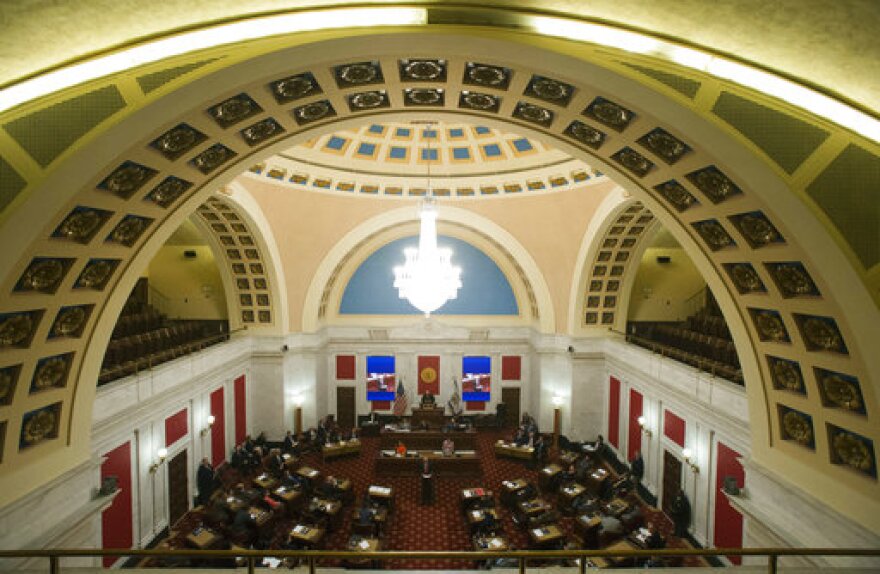Two of four impeached justices on the West Virginia Supreme Court would be allowed to retain their seats on the bench after they reached a proposed agreement to be censured by the state Senate.
The agreement announced at the start of a pre-trial process Tuesday involves justices Beth Walker and Margaret Workman and was made with House of Delegates managers serving as prosecutors in upcoming impeachment trials. It would publicly censure and dismiss impeachment articles against them.
The state Senate, serving as a jury in the proceedings, agreed to recess to consider the agreement. The chamber was set to reconvene in midafternoon.
Under the proposal, Walker and Workman would take responsibility for the cost of renovating their offices and continue to implement reforms to improve the court's administration.
The agreement said Walker and Workman "have publicly acknowledged the need for changed policies and practices to rebuild public trust" in the court.
Workman's attorney, Ben Bailey, told the Senate the agreement is in the best interests of all parties.
The House of Delegates voted last month to impeach Walker, Workman and justices Robin Davis and Allen Loughry. Davis retired hours afterward but remains a target of impeachment articles.
A conviction in upcoming Senate trials could mean a justice would be disqualified from holding public office.
The impeachments stemmed from questions involving renovations to the justices' offices. Those questions evolved into accusations of corruption, incompetence and neglect of duty. Democratic lawmakers, who hold minorities in the House and Senate, have characterized the impeachments as an unprecedented power grab by the GOP.
Loughry, who was suspended in June, was the only justice at the hearing Tuesday. The others are represented by their attorneys.
A 25-count federal indictment against Loughry alleges, in part, that he repeatedly lied about using his office for personal gain. His federal trial is set for Oct. 2.
A fifth justice, Menis Ketchum, resigned in July and pleaded guilty last month to a felony count of fraud related to his personal use of a state vehicle and gas fuel card. He faces up to 20 years in prison.
Some Democrats have complained that the impeachments were strategically timed to allow GOP Gov. Jim Justice to name temporary replacements.
Individual office spending by the justices for renovations included $503,000 by Davis, $367,000 by Loughry, $131,000 by Walker and $113,000 by Workman.
Among Loughry's expenditures were a $32,000 blue suede leather couch in his office and $7,500 for a wooden floor state map with individually outlined counties. Davis spent $56,500 for glass countertops and $28,000 for rugs.
The retirements of Ketchum and Davis ahead of a deadline for justices to step down or be removed meant their replacements would be decided by voters, not gubernatorial appointments. A special election will be held in November to fill their unexpired terms. If the Senate convicts any other justices, the governor would be able to name their replacements.
Impeachments in state government are rare in the U.S., especially among Supreme Court justices. Pennsylvania Supreme Court Chief Judge Rolf Larsen was removed by impeachment in 1994 for voting on whether to hear cases based on input from an attorney who was also a political supporter. But impeaching an entire multi-member court appears to be unheard of.
The last time the Legislature engaged in anything remotely like this was 1989, when state Treasurer A. James Manchin was impeached by the House after the state lost $279 million invested in the bond market. He resigned before the Senate took up the impeachment measure.




